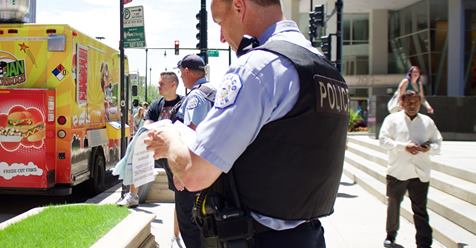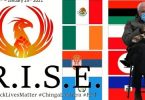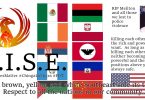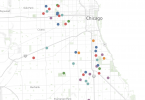Chicago will no longer be exempted from a state law barring Illinois municipalities from imposing ticket quotas on local police departments.
After passing through the Illinois General Assembly with unanimous support, Gov. Bruce Rauner signed Senate Bill 3509 on Aug. 20, eliminating an exemption in the state’s ticket quota ban that allowed Chicago to continue the practice.
Ticket quotas set a predetermined number of traffic or municipal citations police officers are required to issue in a given timeframe. This practice has been criticized as a revenue-generating measure that encourages unjust policing, pressuring officers to unfairly target drivers near the end of a given quota period. By considering the quantity of citations in officer performance evaluations, such quotas encourage more aggressive, rather than more effective, policing.
In June 2014, former Gov. Pat Quinn signed into law a statewide prohibition on ticket quotas. However, the law did not apply to any municipality with “its own independent inspectors general and law enforcement review authority,” exempting Chicago in all but name.
Filed in February by state Sen. Bill Cunningham, D-Chicago, SB 3509 amends the Illinois Municipal Code by removing the law’s Chicago exemption. Under the new law, Chicago will no longer be permitted to assign ticket quotas or factor the number of citations issued into officers’ performance evaluations. “Policing should not be used as a revenue enhancement strategy by municipalities,” Cunningham said in a statement.
Prior to 2015, when the 2014 law went into effect, police departments in cities such as Peoria and Crystal Lake enforced ticket quotas. Chicago has long been accused of assigning quotas, including one instance in 2017 when a Chicago Police Department, or CPD, commander allegedly mandated a minimum number of traffic stops, grabbing the attention of the American Civil Liberties Union, or ACLU.
In response to the ACLU’s criticism, a CPD spokesman issued a statement denying that the department had a “policy or directive” concerning ticket quotas. But Rauner’s approval of SB 3509 – now Public Act 100-1001 – makes clear that the city is barred from the practice, effective Jan. 1, 2019. The Illinois Fraternal Order of Police has criticized the practice of ticket quotas in the past. “Quotas create unnecessary tension between the public and law enforcement,” the organization argued in a 2014 statement.
Ticket quotas are designed to generate revenue, not increase safety. Fortunately, SB 3509 will allow for more public safety resources to be allocated where they’re most needed. By scrapping Chicago’s exemption from the state’s ticket quota ban, SB 3509 is a positive step toward reducing abuse of authority and strengthening trust between local police and the communities they serve.







